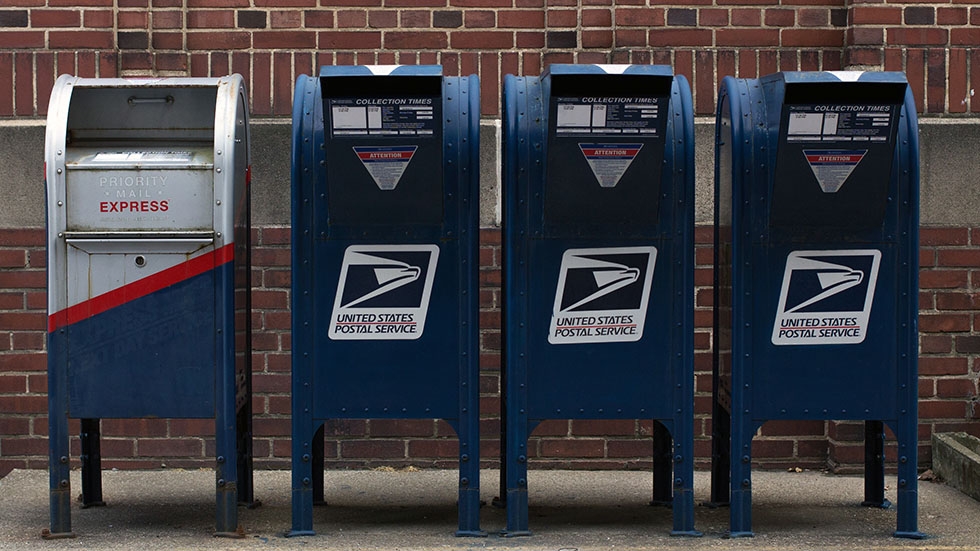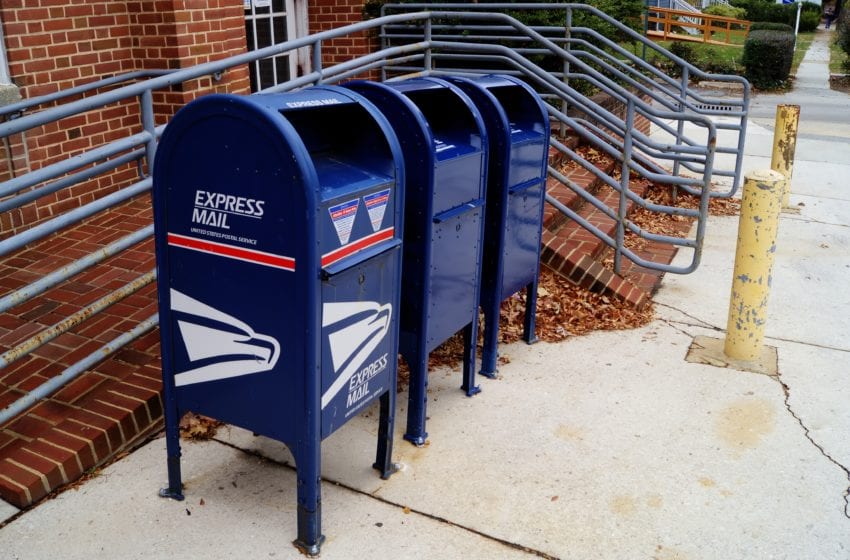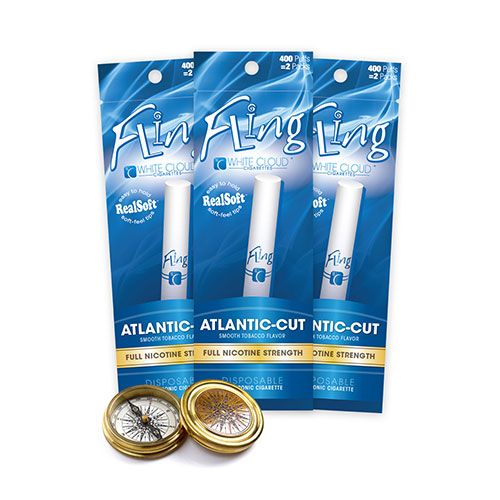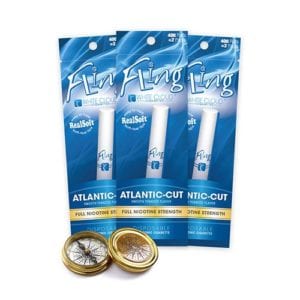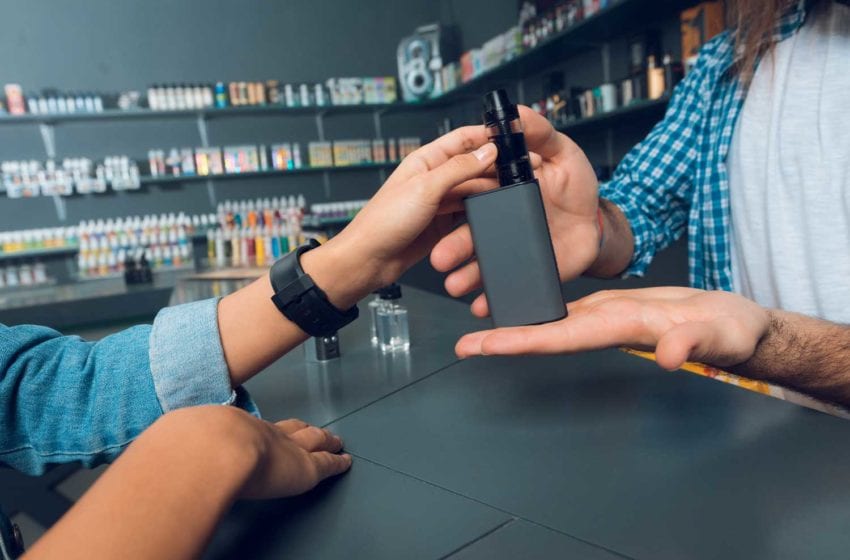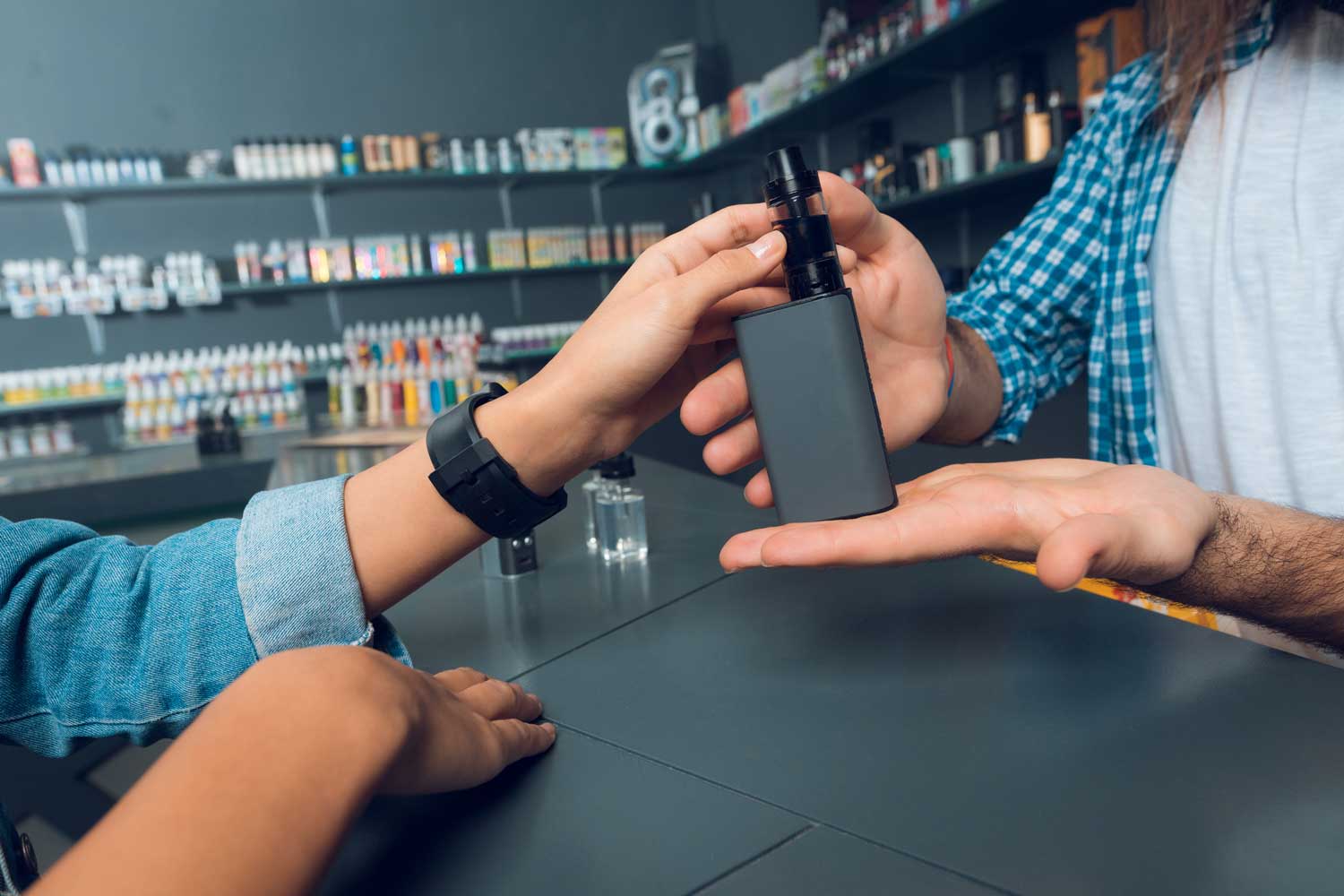
X Delivery wants to be the logistics answer to the challenges of mailing PACT Act-compliant vaping products in the U.S.
By Timothy S. Donahue
When the options seemed bleak, X Delivery took on the challenge. Buried within the omnibus spending bill passed at the end of last year was the Preventing Online Sales of E-Cigarettes to Children Act that prohibits the U.S. Postal Service (USPS) from delivering nicotine or cannabis vaping products directly to consumers by bringing electronic nicotine-delivery systems (ENDS) and cannabis products under the 2009 Preventing All Cigarette Trafficking Act (PACT Act).
All the major shipping carriers (UPS, FedEx, DHL) stopped shipping vaping products too. It seemed the online market for vaping products had ended abruptly (see “Attack of the PACT Act,” page?). Then came X Delivery. The shipping carrier with the simple name offered a solution. While there is still room for growth and bringing on more drivers to deliver vaping products to more zip codes, X Delivery has given many online retailers hope.
The PACT Act requirements make shipping vapor products complicated. Paul Vinuelas, chief logistics officer for X Delivery, said that the company can fulfill all the PACT Act requirements, including verifying the age of the purchaser and obtaining the required signature of the adult with every vape-related delivery. All packages containing vaping products cannot weigh more than 10 pounds (4.5 kg) and all shipping packages must also carry a sticker stating the contents contain a “tobacco” product, along with a statement reminding the recipient that taxes are owed on the purchase, according to Vinuelas.
“All shipping has unique challenges. The fact that the national carriers have opted out of vape shipping shows us that they are only interested in the drop-and-run delivery model. They are not confident in their ability to deliver to a person 21 years or older,” explains Vinuelas. “That’s where X Delivery comes in; we have a network of dedicated individuals who take the PACT Act seriously. We are dedicated to ensuring compliance and protecting youth from obtaining these products. It takes a bit more effort to perform our deliveries and audit them for PACT Act compliance, but we think it’s worth it.”
X Delivery has the capability to ship products to consumers nationwide and can currently deliver to about 90 percent of the U.S. population for vaping products. Vinuelas told Vapor Voice that the company is working to increase its coverage to 100 percent of the country as soon as possible.
“Our final-mile delivery partners are required to check IDs and obtain adult signatures. From an end-customer’s perspective, ordering from an online merchant that ships via X Delivery is just like getting an order from an online merchant that ships with a household-name shipping carrier: You get tracking updates from the moment your order is placed all the way through to your delivery,” says Vinuelas. “We take it a step further and work to notify customers when their package is arriving soon to make sure they are home to receive their package.”
X Delivery was started by CEO Chris Guggenheim, who has a storied career in the entertainment and ecommerce technology industries. These experiences led Guggenheim to invest in technology that drives commerce and opened “X.” The technology company X powers X Delivery, and there are more offerings that will come to market over time under the X umbrella. In 2019, his highest-volume clients asked for help solving challenges they were facing regarding delivery. The technology company soon began supporting the high-tech nationwide shipping carrier X Delivery, which Guggenheim started in early 2020. In just six months after beginning operations, X Delivery delivered more than 10 million packages within a two-day average delivery time nationwide. The company began shipping vape products in late 2020.
“Over the last 6 months, we have partnered with vape companies to build a fully compliant shipping carrier service leveraging our existing technology and logistics capabilities,” explained Vinuelas. “We appreciate the seriousness of these residential deliveries and our local, state and federal regulation compliance efforts have been exhaustive yet successful.”
The knowledge gained running X helped Guggenheim solve a variety of retail issues for merchants, according to Vinuelas. “When we began to pilot our service in 2019, we realized that building technology from the ground up was the only way to support high-growth D2C [direct-to-consumer] e-commerce businesses long term,” he said. “When we talk about the value of X Delivery, it is to improve customer experience, sales conversion and to enable merchants to experience peak performance from one warehouse.”
X Delivery’s official slogan is “Reimagine Delivery.” X Delivery has an unofficial slogan too: Fix logistics. The purpose of X Delivery is to “simplify package delivery through technology, reliability, speed and price,” according to the company’s website, xdelivery.ai. Vinuelas says the company has developed a new approach to logistics by leveraging in-motion supply chain assets, from empty warehouses to local delivery services, and connecting them to new technology.
“Most e-commerce merchants will not be able to accurately answer how much it costs them to ship a package. Many e-commerce merchants incorrectly believe that running an operation out of multiple warehouses will help them take advantage of faster shipping and lower costs. This is not true, and this is what is broken,” explains Vinuelas. “Shipping carriers need to understand that all customers should get the same service no matter where they are shipping from or where they are shipping to in the U.S. This is our purpose in the market today. I’m also going to add that it shouldn’t take a Ph.D. to figure out what it will cost a merchant to ship in the U.S. Shipping carriers need to stop with the extra fees, fuel surcharges, Covid-19 fees, etc. We have done that.”

X Delivery uses an application programming interface (API) to help streamline its shipping process. An API is a set of protocols that sync up data in real-time across various platforms by allowing the backends of software and applications to communicate with each other over the internet.
According to the X Delivery website, with the help of an API, one program (application A) can “call” another program (application B) to access its data or functionalities. For example, users can see data from application A via application B’s interface without manually transferring the data from one program to another. API integrations allow users to automate processes across various digital applications to make the flow of information seamless and instantaneous.
“APIs allow companies to integrate shipping functionality directly into their system or other platforms so they can customize the interfaces to improve productivity and expand fulfillment capabilities while minimizing errors and delays associated with manually transferring data,” the website states. “Our API drives the future of logistics management. We help you simplify package delivery through technology, reliability, speed and price by leveraging in-motion supply chain assets to give you the best shipping options available in real-time.”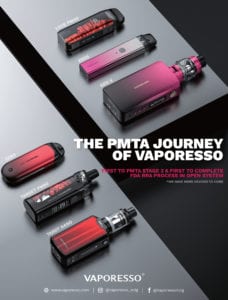
Currently, X Delivery is only shipping for customers with a minimum of 500 packages a day, shipping out of one warehouse with a weight limit of 10 pounds; however, Vinuelas says that the company is working on lowering the minimum package threshold. “We are working hard to eventually offer our service to smaller companies,” he said. “For now, we have partnered with several carefully selected fulfillment companies to help those (smaller) companies tap into the X Delivery network.”
Shipping with X Delivery will be slightly more expensive than shipping with the big-name delivery services but not much more than the cost of USPS delivery with adult signature collection. A 1-pound package costs approximately $6–$7, depending on the amount of packages shipped, and a 10-pound package costs approximately $10–$11 with X Delivery. Those costs are expected to decrease as the network broadens and more companies start shipping through X Delivery, according to Vinuelas.
Moving forward, X Delivery is dedicated to optimizing delivery routes. By joining the X Delivery team, businesses have access to multiple delivery options from anywhere in the country.
“We understand that nothing we say will earn trust better than showing results. We are 100 percent transparent with our clients and their end-customers. We also make it easy for anyone to try us out. Once you try us, you will understand how logistics should work, and you will never want to go back to the old way,” says Vinuelas. “Our long-term goal is to be the No. 1 shipping carrier for D2C ecommerce brands. Vape and e-cigarette merchants want to partner with people who understand the relevant laws in detail and will be a good partner to them. We are that partner.”





